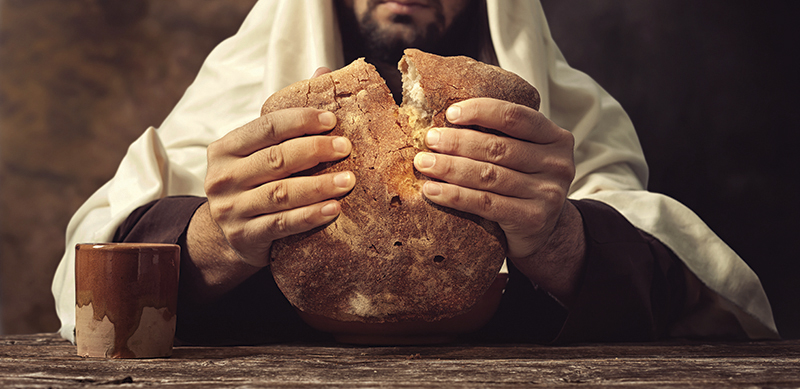XXI SUNDAY IN ORDINARY TIME - Ephesians 5:21-32
In his day, Paul’s teaching about marriage and about the relationship between man and woman sounded like revolutionary, affirming the dignity of marriage and the dignity of those involved in it. Nowadays, there are people who accuse Paul of misogyny, ignoring his message, which they consider to be outdated. However, when Paul said: “There is no longer Jew or Greek, there is no longer slave or free, there is no longer male and female; for all of you are one in Christ Jesus” (Gal 3:28), he could be considered a feminist who defended the equality of men and women. Surely, in his time and for a long time afterwards, feminism would be unthinkable and that shows how fresh and new Paul was. Nowadays, feminism demands not only equal rights but insists in banishing all differences between men and women, trying to prove that women can do everything the men do and do it better. They prefer to speak about gender equality and gender came to be considered as fluid. For many of this post-modernist era, gender is not determined by biology, but by social construct. When someone is born, that someone is a blank slate, on which the gender roles are going to be imprinted. There are people who suffer from gender dysphoria, that is they feel to be trapped in the wrong body. If they have a male body but feel like a woman, then they have the right to be treated like a woman and vice-versa. Instead of looking at that feeling as a delusion and seeing the person as someone who needs to be treated, that feeling is accepted as the reality and society is forced to recognise that person in the way that someone wants to be recognised. The doctors are ready to put those people on hormone treatment and to perform operations on them to erase the external signs of womanhood or manhood. However, all those changes are cosmetic and superficial; they are like a mask that hides the reality behind. The marks of manhood or womanhood remain imprinted in all cells and there is no way of eradicating those marks. The way someone perceives reality is being accepted as the reality, even though it is a lie. And a lie always comes back to daunt those who build their lives on it.
Paul calls us back to true wisdom - the wisdom of God. In marriage, the relationship between a man and woman has a sacred dimension. That relationship was planned by God and manifests the mystery of God’s love. The covenant of love between husband and wife is a sacramental sign of the covenant of love between God and his people or between Christ and the Church. It is a relationship built on love and respect, having Christ as the role model. Indeed, Paul speaks of the relationship between husband and wife in comparison with the relationship between Christ and the Church. In that comparison, the woman stands for the Church and the man for Christ, never forgetting that, in Paul’s theology, the Church is the body of Christ. From this comparison, Pauls takes the affirmation that the husband is the head of the family as Christ is the head of the Church. This statement may be, and it has been, understood as discriminatory and oppressive. However, that is not the conclusion taken by Paul. For Paul, to be the head in Christ’s manner implies service and not power. And that is straightforward and clear: “Husbands should love their wives just as Christ loved the Church”. And Christ died for the Church: he “sacrificed himself for her to make her holy” (Ep 5:25-26). For the man to be head, he must be the first in service, being ready like Christ to suffer for his beloved.
Paul understood that men and women share the same dignity, the same call to holiness, the same hope and the same promise. Each one needs the other to achieve his/ her fulfilment according to the measure of Christ. We are the same, yet we are different - and those differences come from our biological ground upon which everything else may be built. It is this difference that makes possible that makes possible the communion which makes of them one body in marriage. Paul pays attention to our different reactions as men and women and stresses the need of love for women and the need for respect for men. Women feel respected when they are loved and men feel loved when they are respected.
If we want to build families and to educate the children, we need stable marriages, marriages in which husband and wife live in a covenant of love. And we must recognise marriage as sacred. It is the duty of the State to promote and protect stable marriages.
Let us pray for all married couples. May the Lord strengthen their love for one another.


